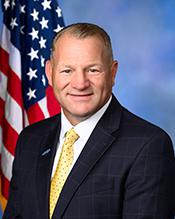0
Drone Research and Innovation for Law Enforcement Act of 2023
3/7/2024, 8:15 AM
Summary of Bill HR 5879
Under this legislation, the Department of Justice would be tasked with establishing a program to support research and development in drone technology for law enforcement purposes. This program would provide grants to law enforcement agencies to acquire and use drones for activities such as search and rescue operations, crime scene investigations, and traffic monitoring.
The bill also includes provisions to ensure that the use of drones by law enforcement agencies is conducted in a manner that respects the privacy rights of individuals. This includes requirements for obtaining warrants before using drones for surveillance purposes and limitations on the retention and sharing of data collected by drones. Overall, the Drone Research and Innovation for Law Enforcement Act of 2023 seeks to strike a balance between leveraging the benefits of drone technology for law enforcement purposes and safeguarding the privacy and civil liberties of individuals. It represents a step towards modernizing law enforcement practices and enhancing public safety efforts.
Congressional Summary of HR 5879
Drone Research and Innovation for Law Enforcement Act of 2023
This bill directs the Federal Aviation Administration (FAA) to study, and create an approval process for, nonlethal de-escalation unmanned aircraft (i.e., drones). Under the bill, nonlethal de-escalation unmanned aircraft means an unmanned aircraft that is equipped with one or more nonlethal weapons or devices and is used by law enforcement personnel in scenarios (1) that present significant risk to human life, and (2) in which the suspected criminal is in a position to potentially escalate the situation and expose human life to a high level of risk.
Specifically, the FAA must initiate a pilot research program to study the potential use of nonlethal de-escalation unmanned aircraft by law enforcement agencies. As part of the study, the FAA must enter into interagency agreements with various federal, state, and local agencies.
The FAA must submit a report on the results of the research program to Congress. The report must include a plan outlining a proposed FAA application process for law enforcement to seek permission to operate nonlethal de-escalation unmanned aircraft.
Within 90 days of submitting the report, the FAA must initiate rulemaking to create a process through which the FAA may provide approval to operate these unmanned aircraft.





